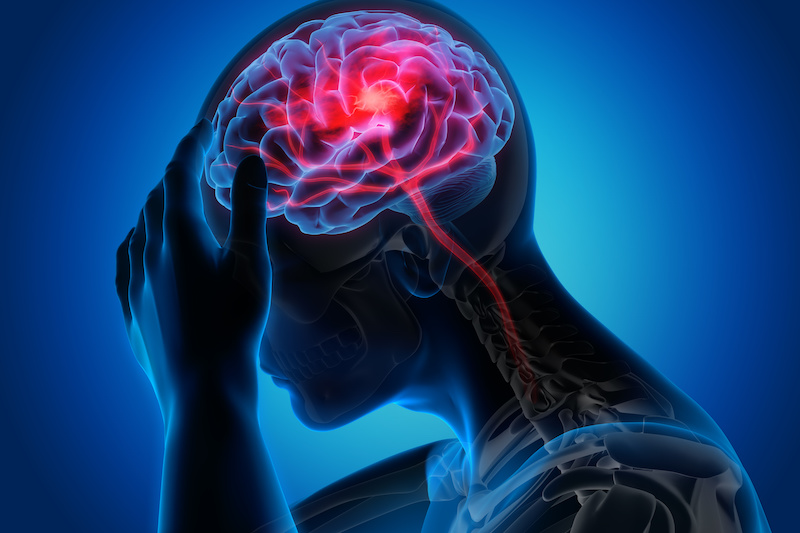
May is American Stroke Awareness Month, and at Regional Neurological Associates, part of our mission is to educate our patients, and the general population, on stroke signs and symptoms, risk factors, and prevention methods. We pride ourselves on providing cutting edge neurological care, including stroke recovery. However, the best-case scenario for us is early detection, or, even better, prevention of the stroke.
When it comes to the brain and neurological health, it can seem like there is little we can do to influence it. However, that’s not the case. Steps can be taken to reduce your risk of certain conditions. Changing bad habits and making healthier lifestyle choices are often a key part of maintaining overall wellness, including neurological health.
So, let’s examine some important steps to take to help prevent a stroke.
Know What a Stroke Is
The CDC defines a stroke as an episode that “occurs when something blocks blood supply to part of the brain or when a blood vessel in the brain bursts. In either case, parts of the brain become damaged or die. A stroke can cause lasting brain damage, long-term disability, or even death.
Lose Weight & Exercise
Being overweight and sedentary increase your risk of having a stroke, partly because obesity and inactivity are often associated with hypertension, heart disease, and diabetes. All of these things increase the risk of an ischemic stroke.
If you’re looking to get into an exercise routine and you’re not sure where to start, plan to work out for 30 minutes a day, five days a week.
Curb Drinking
Drinking too much alcohol can raise both your triglycerides and your blood pressure. A two drink per day limit is recommended for men and a one drink per day limit is recommended for women. Another adverse effect of alcohol is that binge drinking can cause irregular heartbeat. Having four or five drinks in a two-hour period is considered binge drinking.
Quit Smoking
Giving up smoking is always a good idea, especially when it comes to preventing circulatory diseases. Nicotine can cause high blood pressure and carbon monoxide can lower blood oxygen. Tobacco also has a long list of adverse effects on vascular health such as: increasing plaque buildup, lowering levels of HDL (good) cholesterol, thickening and narrowing blood vessels, and making blood more likely to clot.
Pay Attention to Nutrition
Diet should be part of your overall wellness plan and contribute to any weight loss plan necessary. However, let’s look at some specific food types to avoid and foods to seek out when trying to prevent stroke.
Avoid:
- Sodium/salt
- Trans & saturated fats (high cholesterol)
- Processed foods containing the above
Choose:
- Lean protein
- Leafy greens
- Fresh fruits & vegetables
- Foods high in potassium
Lower Blood Pressure
High blood pressure is responsible for more than 50% of strokes, making it the number one cause. Hypertension can increase your chances of having a stroke by four to six times. High blood pressure can cause build up or structural weakness in arteries that can either create blocks to the brain’s blood supply or cause a hemorrhage.
Identify, Monitor and Treat Atrial Fibrillation
Atrial fibrillation, a type of irregular heartbeat, causes clots within the heart. Those clots can travel up to the brain and cause a stroke.
Be Vigilant About Treating Diabetes
Diabetes can add fifteen years to your cardiovascular age. Meaning, if not treated properly, diabetes can cause a lot of damage to your blood vessels, which can, in turn, increase blood pressure and even a stroke.
Aggressively Treat Transient Ischemic Attack (TIA)
If you have previously had a TIA, your risk of having a stroke much greater. Make sure you are consulting with your physician and monitoring your progress.
Get Familiar with the Warning Signs of Stroke
If you know what a stroke is, you might already be familiar with the symptoms of a stroke. They can include:
- Unsteadiness on your feet
- Vision loss
- Unusual severe headache
- Numbness of the face
- Weakness on one side of the body
One device that helps some people remember the warning signs of stroke is using the acronym FAST.
F: Face – does it droop to one side?
A: Arms – does one arm drift back down when you lift both?
S: Speech – is it slurred or sound odd?
T: Time – call 911 immediately if any of these signs occur.
If you are concerned about the possibility of stroke, schedule an appointment by calling (718) 515-4347. The physicians at Regional Neurological Associates can assist you whether you’re worried about showing the warning signs of stroke, have had a stroke and need help with recovery, or have another neurological issue.
If you think you or someone you love has suffered a stroke, call 911 immediately.


